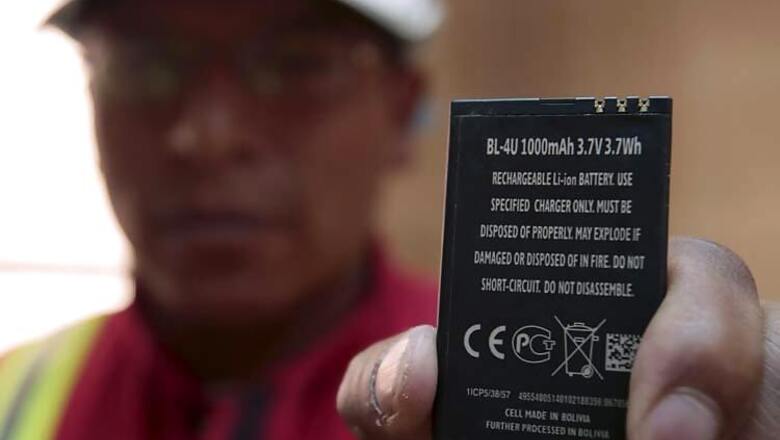
views
London: The cost of storing energy in batteries could fall by as much as 70 per cent over the next 15 years as new solar battery technology and other technical advances drive prices down, the World Energy Council said on Wednesday.
Grid-scale electricity storage would make the variable supply of renewable sources such as wind and solar more flexible, and it could add energy to the grid quickly when power needs spike.
At the moment, total electricity generating capacity must be far higher than average consumption to cater for peak demand but energy storage could overcome the current problem where power is generally consumed at the time it is generated.
Currently, the high cost of battery systems can prevent power plant operators from deploying them on a commercial scale.
But the costs of several storage technologies will fall as production volumes increase, according to a report by the World Energy Council.
Storage options range from pumped hydroelectric storage, which accounts for most of grid-scale energy storage capacity worldwide available now, to newer, higher technology chemical approaches including lithium ion and sodium sulphur batteries.
Battery technologies show the greatest reduction in cost by 2030, falling by as much as over 70 percent from 100-700 euros per megawatt hour (MWh) in 2015 to 50-190 euros/MWh in 2030, the report showed.
"Solar storage will become more competitive as new battery technology drives prices down, and wind storage more attractive as technical advances in areas such as composite materials enables the power generated by wind turbines to increase," the World Energy Council said in a statement.
"While batteries are currently too expensive for large-scale use, improving technology is cutting costs which means storage systems could replace some plants and avoid the need for new ones, as well as reduce demand for oil," it added.
Pumped hydroelectric storage will have the lowest cost reduction as it is a more mature technology, followed by compressed air energy storage.
The widely-used way of calculating the cost - using the levelised cost of energy or the combined cost of generating electricity, building a plant and fuel costs - can lead people to think energy storage is more expensive than it actually is because it ignores the value of stored energy, the report added.




















Comments
0 comment